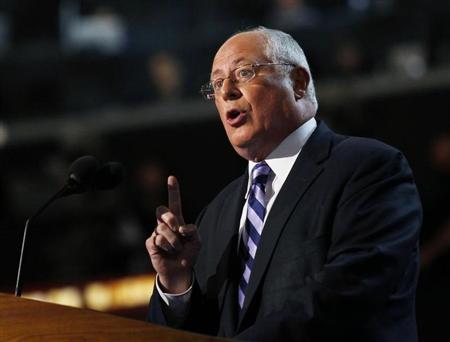(Reuters) – Illinois Governor Pat Quinn will unveil a fiscal 2014 budget on Wednesday that will chip away at a huge pile of overdue bills and cut spending to accommodate growing public pension costs, top state officials said on Tuesday.
“The governor’s fiscal 2014 budget is balanced, it’s honest and it’s extremely difficult,” Illinois Budget Director Jerry Stermer told reporters at a preview for the $62.4 billion all-funds budget that includes $35.6 billion of general fund spending.
Pension payments totaling $6 billion will consume 19 percent of the general fund, compared to just 6 percent in fiscal 2008. As a result, the Democratic governor’s spending plan for the fiscal year that begins July 1 includes projected cuts of about $400 million to education and additional cuts in transportation and state-funded colleges and universities.
“We have to address the pension issue. It’s squeezing out other expenditures,” said Jack Lavin, Quinn’s chief of staff.
Quinn’s spending plan would also shrink the bill backlog to $6.8 billion in the coming fiscal year from $8.7 billion at the end of fiscal 2012 while eschewing new fees or taxes. And the governor will propose a way to pay down the bill pile faster in his budget address before the General Assembly on Wednesday, aides said.
Illinois stands alone among states in the scope and way it has institutionalized late payment of bills as a budget-balancing tool. The resulting structural budget imbalance as well as inaction by lawmakers to reduce a $96.8 billion unfunded pension liability have given Illinois the lowest credit ratings among the states.
Stermer said the governor wants the actual costs of programs and their outstanding bills to match up to appropriations – a practice that has not been followed by the legislature.
“The reality is we need to end the budget gimmickry,” he said.
The Illinois Constitution’s balanced budget requirement only stipulates that expenditures not exceed estimated revenue, leaving the door open to the use of unrealistic revenue assumptions and chronic underfunding of programs to create the illusion of balance.
A tentative agreement with the American Federation of State, County and Municipal Employees Council 31 will save Illinois more than $900 million in health care costs over the three-year life of the contract by requiring contributions from retirees for the first time, according to Lavin.
But Illinois will also have to come up with about $140 million for unionized workers after the state lost a court battle over wage increases, Lavin said.
(Reporting by Renita D. Young; Additional reporting by Karen Pierog in Chicago; Editing by Lisa Shumaker)

COMMENTS
Please let us know if you're having issues with commenting.